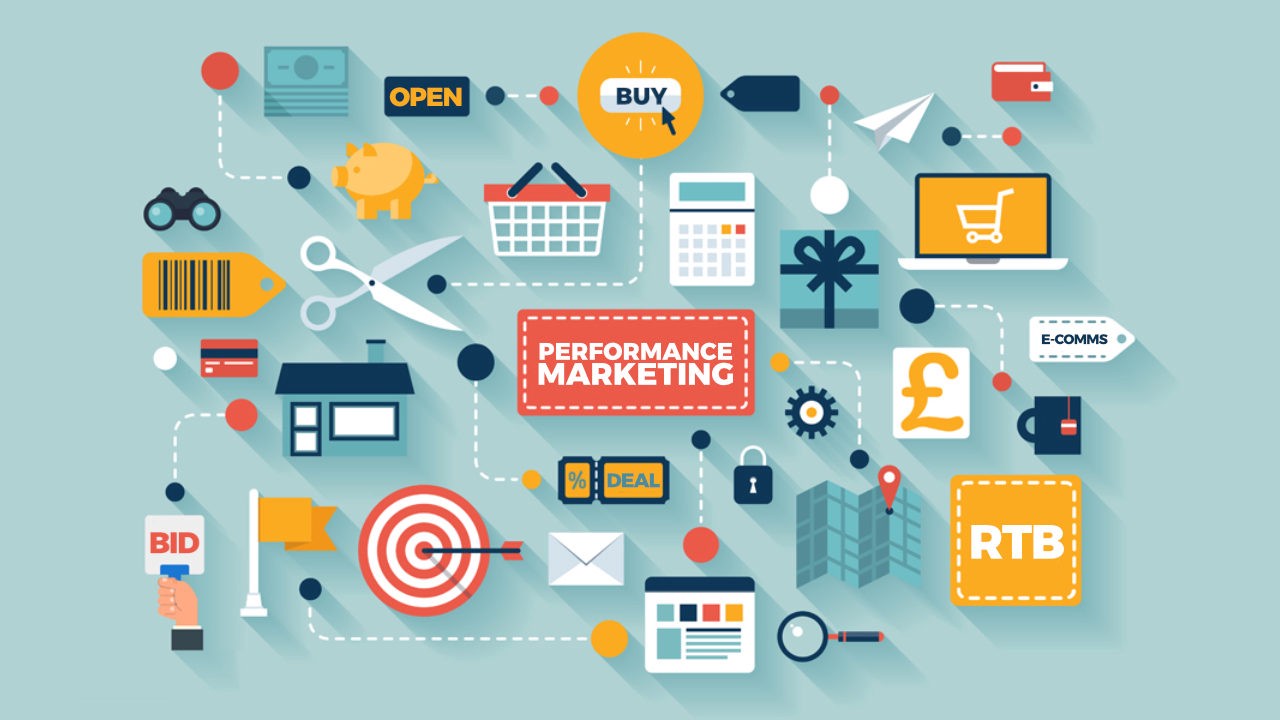Performance marketing has revolutionized the world of advertising. It is a strategy that focuses on driving measurable results, such as sales or leads, rather than just increasing brand awareness. With the rise of digital marketing, performance marketing has become a fundamental approach for businesses to achieve their marketing goals.
In today’s competitive market, where consumers are constantly bombarded with advertisements, it is crucial for businesses to have a targeted and result-oriented approach towards marketing. This is where performance marketing comes into play – enabling businesses to reach their target audience effectively and efficiently. In this article, we will delve into the concept of performance marketing, its benefits, and how it can be implemented to maximize results.
Understanding Performance Marketing
What is Performance Marketing?
Performance marketing is a form of online advertising where advertisers pay for a specific action, such as a click, lead or sale. Unlike traditional forms of advertising, where advertisers pay a fixed amount regardless of the results, performance marketing allows businesses to pay only when a desired action is taken by the consumer. This makes it a cost-effective option for businesses, as they are paying for actual results rather than potential outcomes.

Performance marketing is a type of online advertising where advertisers compensate based on specific actions, such as clicks, leads, or sales
Performance marketing operates on a pay-for-performance model, making it a win-win situation for both advertisers and publishers. Advertisers get to track their ROI (return on investment) accurately, while publishers earn revenue by promoting the advertiser’s products or services. This type of marketing is commonly used in digital platforms such as social media, search engines, and affiliate websites.
How does Performance Marketing Work?
The success of performance marketing lies in its tracking capabilities. Advertisers use tracking tools, such as cookies or pixels, to measure the actions taken by users after seeing an ad. These tracking tools allow businesses to gather data, which helps them understand consumer behavior and make informed decisions about their marketing strategies.
Here’s an example of how performance marketing works:
- A user sees an ad for a product on Facebook and clicks on it.
- The user is directed to the product’s landing page, where they can make a purchase.
- When the user makes a purchase, the advertiser pays a commission to the publisher who drove the sale through their ad.
This type of performance-based payment model ensures that businesses are paying only for desired results. It also allows them to track their ROI and adjust their marketing efforts accordingly.
The Importance of Performance Marketing
Performance marketing has gained popularity due to its effectiveness in delivering measurable results. Here are some reasons why it is crucial for businesses to incorporate performance marketing into their overall marketing strategy:
- Cost-effective: As mentioned earlier, performance marketing operates on a pay-for-performance model, making it a cost-effective option for businesses. They only pay for actual results, which helps them optimize their marketing budget.
- Targeted approach: With performance marketing, businesses can target their ads towards a specific audience based on demographics, interests, and behavior. This targeted approach ensures that the ads are shown to the most relevant audience, increasing the chances of conversions.
- Measurable results: Unlike traditional forms of advertising, performance marketing provides tangible results that can be accurately measured. This helps businesses understand the effectiveness of their campaigns and make data-driven decisions for future marketing efforts.
- Flexibility: Performance marketing offers flexibility in terms of budget and ad placements. Businesses can choose to increase or decrease their budget based on their goals, and they have the freedom to choose where their ads will be displayed.
Benefits of Performance Marketing
Performance marketing offers numerous benefits for businesses. Let’s take a closer look at some of them:
Cost-efficient
One of the biggest advantages of performance marketing is its cost-efficiency. Since businesses only pay for actual results, they can effectively manage their marketing budget. This makes it an attractive option for small businesses or startups with limited resources.

One of the major benefits of performance marketing is its cost-effectiveness
Targeted Advertising
With the help of tracking tools and data analysis, performance marketing allows businesses to target their ads towards a specific audience. This targeted approach ensures that the ads are shown to the most relevant audience, increasing the chances of conversions.
Measurable Results
Performance marketing provides tangible results that can be accurately measured. Businesses can track their ROI and determine the effectiveness of their campaigns. This helps them make informed decisions about their future marketing efforts.
Higher ROI
The pay-for-performance model of performance marketing makes it possible for businesses to achieve a higher ROI compared to traditional forms of advertising. By only paying for actual results, businesses can optimize their budget and increase their return on investment.
Flexibility
Performance marketing offers flexibility in terms of budget and ad placements. Businesses can adjust their budget based on their goals, and they have the freedom to choose where their ads will be displayed. This flexibility allows for better optimization of marketing efforts.
Implementing Performance Marketing
To implement performance marketing effectively, businesses need to follow certain steps:
Define your Goals and KPIs
Before diving into performance marketing, it is crucial to define your goals and key performance indicators (KPIs). These could include increasing website traffic, generating leads, or driving sales. Defining your goals and KPIs will help you create a targeted and effective campaign.
Identify your Target Audience
It’s essential to understand your target audience and their behavior before launching a performance marketing campaign. This will help you create more targeted ads and increase the chances of conversions.

Before starting a performance marketing campaign, it’s crucial to comprehend your target audience and their behaviors thoroughly
Choose the Right Platform
There are various platforms available for performance marketing, such as social media, search engines, and affiliate websites. It’s important to choose the right platform based on your target audience and goals. For example, if your target audience is active on social media, then advertising on social media platforms would be more effective.
Create Engaging Ads
Performance marketing is all about driving conversions, so it’s crucial to create engaging ads that capture the attention of your target audience. Use eye-catching visuals, persuasive copy, and clear calls-to-action to entice users to take action.
Track, Analyze, and Optimize
Tracking and analyzing the performance of your campaign is crucial for its success. By studying the data, you can identify areas for improvement and optimize your campaign accordingly. This will help you achieve better results and increase your ROI.
Performance Marketing Strategies
There are various strategies that businesses can use for performance marketing. Let’s take a look at some of the most popular strategies:
Search Engine Marketing (SEM)
Search engine marketing (SEM) involves promoting your website through paid advertisements on search engines, such as Google or Bing. These ads appear at the top of the search results when users search for specific keywords related to your business. SEM is an effective way to reach potential customers who are actively searching for products or services similar to yours.
Social Media Advertising
Social media advertising involves promoting your products or services on social media platforms, such as Facebook, Instagram, or LinkedIn. These platforms offer advanced targeting options, making it easier for businesses to reach their target audience.
Affiliate Marketing
Affiliate marketing is a performance-based marketing strategy where businesses pay a commission to affiliates (publishers) for each sale or lead they generate. Affiliates promote the advertiser’s products or services through their websites, blogs, or social media pages, and earn a commission for every successful referral.
Influencer Marketing
Influencer marketing involves collaborating with influencers (individuals with a large following on social media) to promote your products or services. It is a popular strategy for performance marketing, as influencers have the power to influence consumer behavior and drive conversions.
Email Marketing
Email marketing is a performance-based strategy where businesses send promotional emails to their target audience. Email marketing allows for personalized and targeted communication, making it an effective way to drive conversions.
The Future of Performance Marketing
The digital landscape is constantly evolving, and so is performance marketing. Here are some trends that will shape the future of performance marketing:
Artificial Intelligence (AI)
AI is being incorporated into various industries, and performance marketing is no exception. With AI-powered tools, businesses can analyze data faster and more accurately, allowing them to make informed decisions about their campaigns.
Personalization
In today’s world, consumers expect personalized experiences from brands. Personalization will play a crucial role in performance marketing, as businesses will need to create tailored ads for different segments of their target audience.
Video Advertising
Video has become a popular form of content, and it’s expected to continue growing in the future. Businesses will incorporate video advertising into their performance marketing strategies, as it is a more engaging and interactive way to reach their target audience.
Voice Search Optimization
With the rise of virtual assistants such as Alexa and Siri, voice search optimization will become an essential aspect of performance marketing. Businesses will need to optimize their content for voice search to rank higher and reach potential customers.
Challenges of Performance Marketing
While performance marketing offers numerous benefits, there are also some challenges that businesses may face:
Ad Blocking
Ad blocking is becoming increasingly popular, with more and more users opting for ad blockers. This can hinder the performance of your ads and affect your campaign’s results.
Fraudulent Activities
Performance marketing relies on accurate tracking of user actions, but there is always a risk of fraudulent activities, such as click fraud, where bots or illegitimate sources generate clicks or leads.
Saturation
With the rise of performance marketing, there is a saturation of ads on digital platforms. This makes it challenging for businesses to stand out and reach their target audience effectively.
Ad Fatigue
Consumers are constantly bombarded with ads, which can lead to ad fatigue. This means that they become immune to advertisements, making it challenging for businesses to capture their attention.
Conclusion
Performance marketing is a dynamic and result-driven approach towards marketing. It offers numerous benefits for businesses, such as cost-effectiveness, targeted advertising, and measurable results. With the rise of digital platforms and advancements in technology, performance marketing will continue to evolve and shape the future of advertising. Businesses that adopt this strategy and stay up to date with the latest trends will have a competitive advantage in today’s market.
